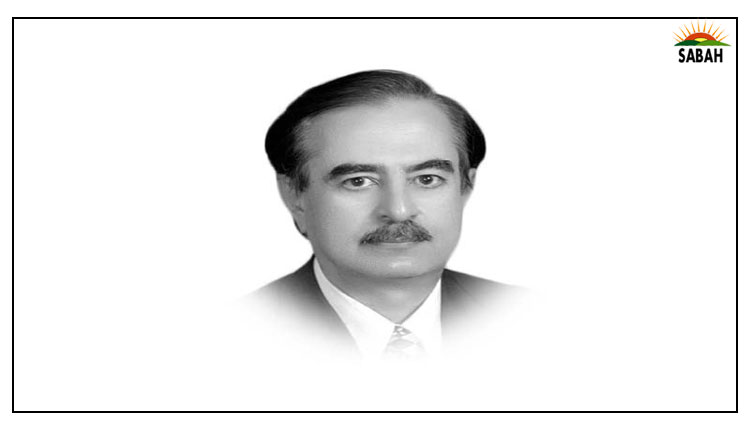Gramsci and Barnays: common sense and its insidious manipulation… Sahibzada Riaz Noor
Antonio Gramsci, one of the key Marxists of the 20th century, in his Prison Notebooks (1929) writes: “Central to the concept of Common Sense is that it is truths (that) need no sophistication to grasp and no need to accept. Their truth is accepted by the whole society and immediately apparent to anyone of normal intelligence.”
The common man doesn’t realise that common sense has certain rules governing it. People through accumulation of practice reinforce the rules that underlie the common sense but they forget that they are the creators of these rules which acquire an independent reality as if we don’t make or can’t change them.
We come to believe that these truths of common sense are in our own interests and it is not in our interest to question or attempt to change them. And that is why common sense is so difficult to change and the status quo is so self-persistent.
Where does common sense arise from? The elements or institutions from which they germinate are family, friends, extended family, the workplace, education system, religious education, media, cultural apparatus, etc.
Common sense, Gramsci noted, is not an area to be left to the masses to look after themselves. It is an area of serious contest to have one’s view of how the world operates becomes the predominant view.
For Gramsci the narratives that become hegemonic or the prevailing reflect the world as seen from the vantage point of the dominant or powerful classes.
When the ruled begin to believe that the rulers do not rule in their interests, the rulers lose their legitimacy and can be replaced.
But we need to understand that common sense is not unmalleable. It is always open to change and that is where the ideas of men like Edward Barnays – regarding manipulation of opinions, thoughts and conduct of the unthinking masses, governed by emotions and the subconscious – become relevant and pertinent.
Edward Bernays, nephew of Sigmund Freud, advocated a perniciously reactionary philosophy: “The conscious and intelligent manipulation of the organized habits and opinions of the masses is an important element in a democratic society.”
“In almost every act of our daily life whether in the sphere of politics, in our social conduct or ethical thinking we are dominated by the relatively small number of persons. It is they who pull the wires which control the public mind.” (Edward Bernays (1889-1995), Propaganda: The Engineering of Consent, 1955)
Chris Hedges (Banishing Truth: 2018), speaking of the greatest danger to democracy, observes: “The most ominous danger we face comes from the marginalisation and destruction of institutions like the courts, the parliament, political parties, press, academia, social organisations/NGOs, etc which once ensured that civil discourse was rooted on reality and facts, that helped us distinguish between lies and truth and facilitated justice.”
“The permanent lie is perpetuated even in the face of overwhelming evidence that discredits it. It is irrational. Those who speak in the language of truth and false are attacked as liars, traitors and purveyors of fake.”
Barney advocated: “In democratic government leaders must engineer consent towards what these leaders call socially constructive objectives.”
Walter Lippmann, the leading Roosevelt-Kennedy era liberal, notes: “In democracies it is the work of leaders to manufacture consent.”
Harold Laswell, one of the founders of political science, posits: “We should not be deluded by the democratic dogmatism that men are the best judges of their interests Men are often poor judges of their interests.”
Edward Bernays, the father of modern propaganda and manipulation of human minds, pioneered the public relations industry’s use of mass psychology and other social sciences to design public persuasion. He argued: “If we understand the mechanism and motives of the group mind, is it not possible to control and regiment the masses according to our will without their knowing about it? Universal literacy has given [the common man] a rubber stamp, a rubber stamp inked with advertising slogans, TV bubbles, editorials, social media Each man’s rubber stamp is the twin of millions of others, so that when these millions are exposed to the same stimuli, all receive identical imprints. […]”
Bernays put forward the disengenuous and dangerous idea, antithetical to all liberal norms and which underlies the thinking of all fascist, authoritarian leaders, “that manipulation of opinions and minds by the ‘disinterested’ wise, the few at the top, was essential for democracy since people were mentally unable to comprehend what was best for the society and to bring forth order out of chaos and productive ends.”
But what was guaranteed was that these few will not misuse these elements of mental control for selfish purposes of retaining power through undemocratic means.
“The conscious and intelligent manipulation of the organized habits and opinions of the masses is an important element in democratic society. Those who manipulate this unseen mechanism of society constitute an invisible government which is the true ruling power of our country We are governed, our minds are molded, our tastes formed, our ideas suggested, largely by men we have never heard of.”
In almost every act of our daily lives, whether in the sphere of politics or business, in our social conduct or our ethical thinking, we are dominated by the relatively small number of person who understand the mental processes and social patterns of the masses. It is they who pull the wires which control the public mind.
For Bernays, propaganda was not immoral since it was only an alternative to chaos.
One way Bernays reconciled manipulation with liberalism was his claim that the human masses would inevitably succumb to manipulation – and therefore the good propagandists could compete with the evil.
Bernays who wrote in his autobiography that Goebbels read and used his books averred that “the minority which uses this power is increasingly intelligent, and works more and more on behalf of ideas that are socially constructive.”
Modern society portrays a battleground of conflicting ideas: between the Gramscian common sense manipulated by the ‘rogue intellectuals’, and its opposite ‘contrarian common sense’ which is created by the ‘true intellectuals’ who represents the actual struggle between the powerful and the subalterns to create an alternate hegemony of the common sense towards a transformed liberal equalitarian social order.
Courtesy The Express Tribune












